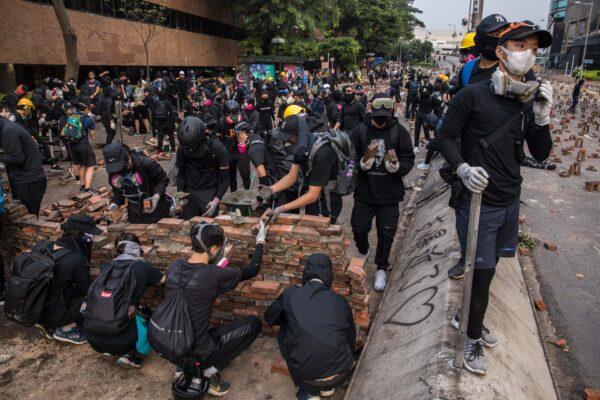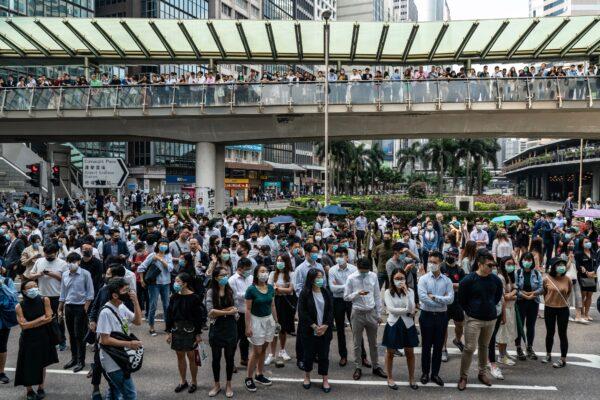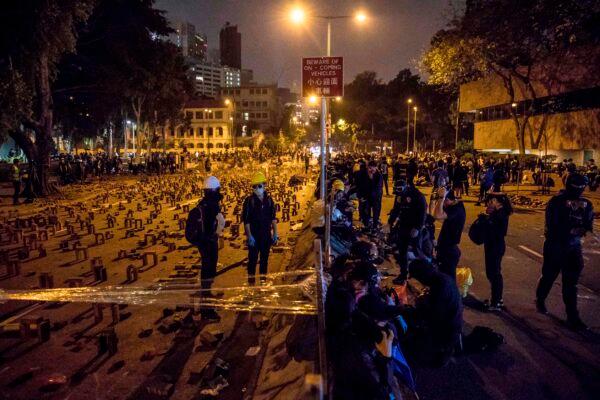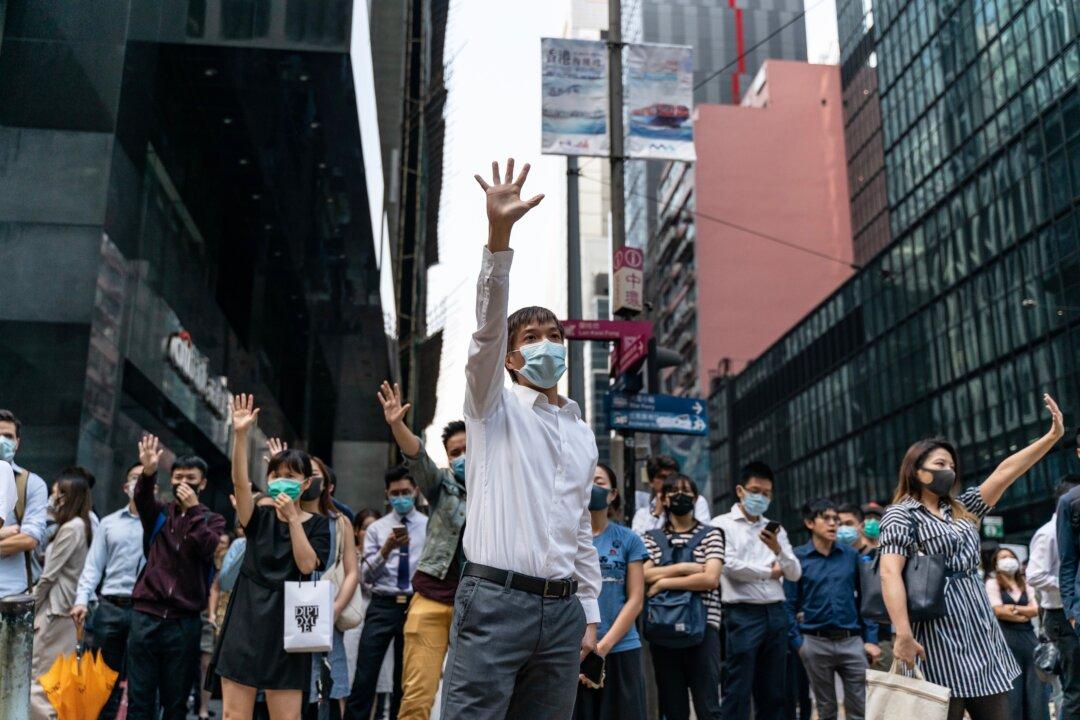Chinese leader Xi Jinping said Hong Kong protesters are “radically engaging in violent crime,” in his first public comments about the crisis in the city since mass demonstrations erupted in June.
He added, during a Nov. 14 speech in Brazil, that stopping the protests is Hong Kong’s “most urgent task.”
Xi was in Brasília, Brazil, for the 11th BRICS summit, an economic forum involving leaders from Brazil, Russia, India, China, and South Africa, held on Nov. 13–14.
Speech
He said the protests “have seriously trampled on the rule of law and social order, seriously undermined Hong Kong’s prosperity and stability, and seriously challenged the ‘one country, two systems’ principle,” referring to the framework by which the Chinese regime has promised to rule Hong Kong while preserving its autonomy. The territory reverted to Chinese from British rule in 1997.As Hong Kong police ratcheted up their tactics this week by bombarding college campuses with tear gas and making arrests, Xi gave tacit support for the Hong Kong government’s handling of the crisis.

He said solutions to the protests would be “steadily supporting Hong Kong police to enforce laws, and firmly endorsing Hong Kong’s judicial system to punish violent criminals.”
Xi added that the Chinese regime would “determinedly oppose any foreign forces interfering in Hong Kong issues,” echoing past Chinese officials’ criticism of U.S. officials’ show of support for protesters.
State Media
On the afternoon of Nov. 14, the Twitter account of Chinese state-run media Global Times, which posts in English, published a tweet claiming that the “Hong Kong government is expected to announce curfew for weekend.” But the tweet was soon deleted.Meanwhile, more than 1,000 people crowded Connaught Road, a major thoroughfare, around lunchtime for an impromptu demonstration on Nov. 14.

The commentary also described protesters as those who “kill and burn people in public” and “attack mainlander students,” without providing examples. There have been no such reported incidents in the months of protests.
The Global Times added that “direct state action will be inevitable.”

Comments by Xi and the recent state media rhetoric signal that Beijing wants to clamp down harder on protesters, via Hong Kong police, U.S.-based China affairs commentator Tang Jingyuan said.
“It could be preparing for a bloody suppression,” he said.
Meanwhile, Beijing is trying to feed its false narrative of the protests to mainland Chinese citizens, so they support its future actions in Hong Kong.
“Beijing is worried that mainlanders will ask for freedom and democracy just like Hongkongers. The fake news can prevent that,” he said.





